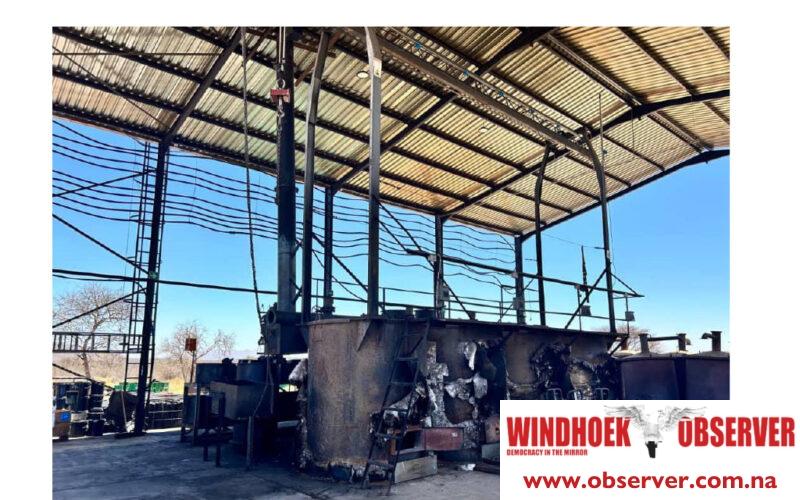Martin Endjala
PyroNam, a subsidiary of Pyrogenic Carbon and Storage Namibia (PTY) Ltd. (PyroCCS), intends to set up 50 biochar manufacturing plants in Namibia by 2030.
The company is developing a business model suitable for communal land and plans to build a pilot plant in 2025.
This announcement was made on Monday by the company’s Managing Director, Henrike Geldmacher.
PyroCCS is a German company focusing on climate tech project development, exclusively working in countries of the Global South. It aims to remove carbon dioxide from the atmosphere using various methodologies and technologies.
The company manufactures and sequesters biochar from waste biomass and is responsible for implementing pyrolysis projects in Namibia.
The PyroCCS group registered PyroNam to participate in the production of biochar to create carbon credits for the voluntary market. It has already set up one pilot plant in Namibia at the end of 2022, situated near Otjiwarongo on the farm Waltershagen. A second plant will be established at Waterberg this year.
“PyroNam has the intention to strongly scale in Namibia as the biomass supply is available. We intend to set up another 50 plants by 2030. For this purpose, PyroNam is seeking project debt financing,” Geldmacher said.
The plant has an input capacity of up to 3 500 tons of dried bush biomass per year, with an output capacity of over 1,000 tons of biochar annually. According to Geldmacher, this translates to a total carbon dioxide sequestration of 2 200 tons of CO2.
“The deployed technology is simple but clean and low in emissions,” she explained.
At this stage, 90% of the technology can be manufactured in Namibia or South Africa, supporting local value creation. The managing director added that the plans are designed for rural, decentralised settings.
The company believes there is strong interest from many farmers who want to earn revenues beyond traditional farming income while also addressing the expensive process of de-bushing.
The first carbon credits from the Waltershagen plant have already been sold to several companies from the Nordic countries in Europe. Additionally, all emissions are accounted for and retired when generating the carbon credits.
A total investment of N$14 million has been made so far, with an additional N$4 million from a Namibian private company and N$5.5 million from foreign direct investment.
Geldmacher said that the lack of funds is hindering the projects from reaching their set targets, though she remains optimistic about securing more financing.
The company employs more than 21 skilled and unskilled workers.
Biochar manager Eck Volkmann explained that PyroNam uses the encroacher acacia species, which overtake farmlands, as input biomass.
“These encroacher bushes grow at a rapid pace, and every year 15 million tons of new growth is added to the already existing 450 million tons of bush,” Volkmann revealed.
He added that the company sources the bush from local commercial, communal, and resettlement farmers through a Forest Stewardship Council (FSC)-approved process that ensures sustainable harvesting.
“We enter into biomass sourcing contracts with farmers, providing them with additional revenue streams,” Volkmann said.
The biochar output can be used for agricultural purposes, as it acts as a natural soil amendment, increasing the water-holding capacity of soils and reducing the need for fertilisers.
Volkmann noted that the downside is the small market for biochar.
“We will sell biochar to farmers and donate it for trials and market development, such as for research institutions,” Volkmann said.




